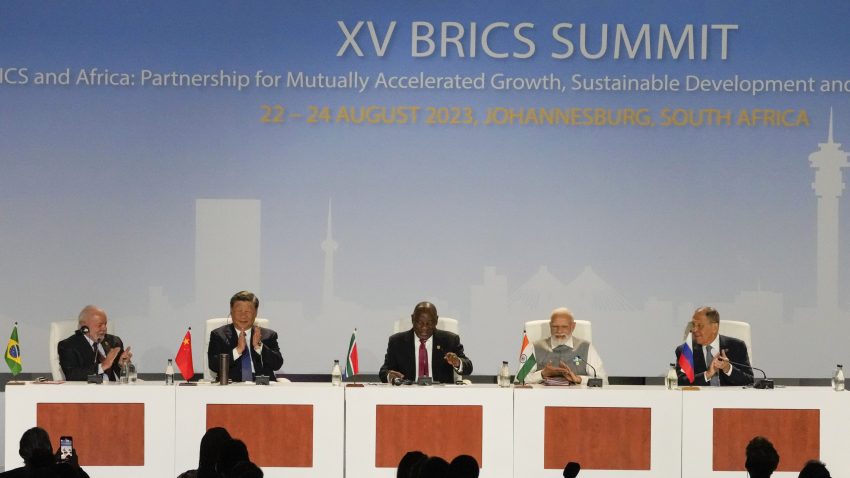A group of five will soon be a concert of eleven. At last week's summit of the BRICS nations, Brazil, Russia, India, China, and South Africa agreed to invite Ethiopia, Argentina, Iran, Egypt, Saudi Arabia, and the United Arab Emirates to officially join the group on Jan. 1, 2024. The new BRICS, or what might be called BRICS+, will soon be comprised of nations with nearly five times the population and more than 20 percent greater economic output than the G7 grouping of wealthy industrialized nations.
Some see the expanded BRICS as a “new alliance” that will soon “overtake” Western-led institutions such as the G7 and NATO. Others lampooned the announcement, seeing BRICS as a “fake” institution lacking a clear vision or coherence. Others were measured, acknowledging that while the group hasn't yet accomplished anything concrete, it carries great potential. For instance, Singapore-based geopolitical risk analyst Gokul Sahni remarked that the enlarged BRICS “could possibly serve as a counterweight to the G7 in terms of scale,” while Christopher Weafer, CEO of Macro-Advisory consultancy, said BRICs “is now starting to emerge” as a viable bloc to counter western dominance in the global economy.
Last year's summit was significant for how it contrasted with the G7 meeting, which was held almost simultaneously. At last year’s summit, the BRICS states began articulating a vision for a “new era” in economic development built around an alternative vision for global governance, one that is more inclusive and less Western-dominated. With this year’s decision to expand, those words are now manifesting into action. Indeed, BRICS and its message seems to carry a certain appeal, as apparently as many as 40 nations wish to join the bloc.

